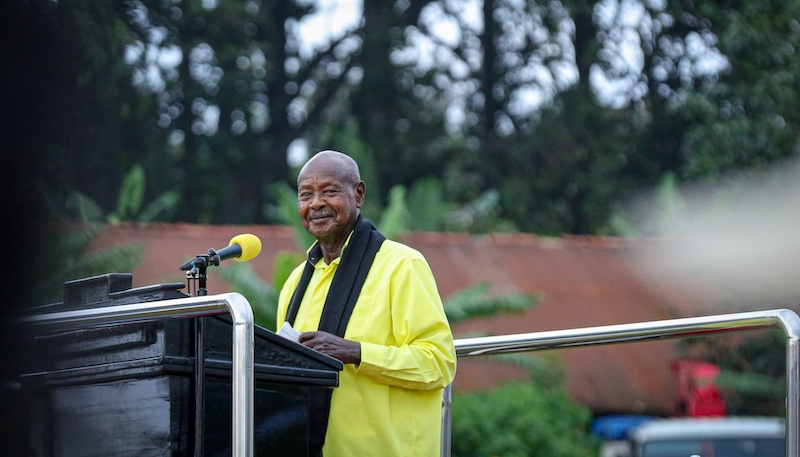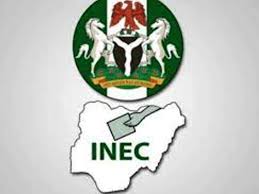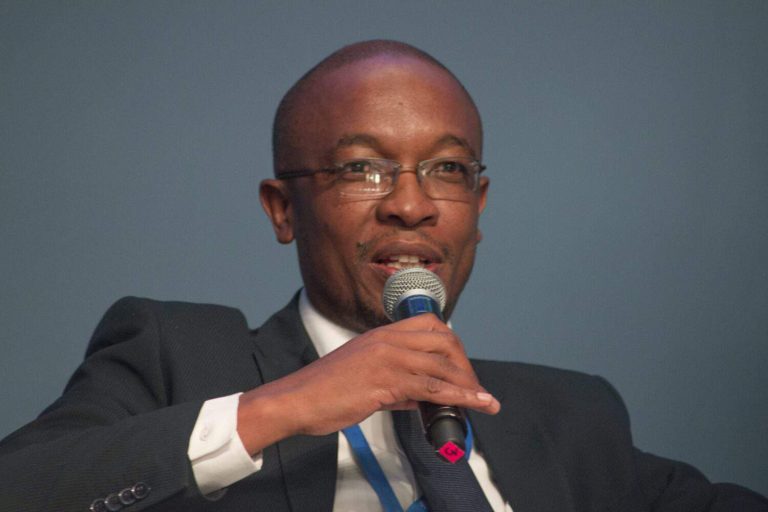
Uganda’s police have pushed back against growing criticism that they are favoring President Yoweri Museveni and his ruling party during the early stages of the 2026 election campaign, insisting that the president’s movements remain a matter of state security, not politics.
The controversy erupted after scenes of jubilant crowds in yellow shirts flooded Kampala’s streets during Museveni’s nomination day last week. Supporters of the National Resistance Movement (NRM) danced and waved flags in open processions to Kololo ceremonial grounds—escorted, but not interrupted, by security officers.
For many opposition leaders, the images stung. Just days earlier, police had blocked rallies for opposition candidates, including National Unity Platform (NUP) flagbearer Robert Kyagulanyi Ssentamu and Forum for Democratic Change (FDC) candidate Nathan Nandala-Mafabi, in parts of Eastern Uganda such as Iganga and Jinja.
Officers cited traffic disruptions and violations of campaign guidelines, sparking accusations of selective law enforcement.
“Blocking us from campaigning in Iganga municipality is a violation of our rights,” said David Lewis Rubongoya, NUP’s secretary general.
“Like other candidates, we have every right to campaign in all parts of Uganda.”
At the weekly security briefing at Police headquarters in Naguru, Assistant Commissioner of Police Kituuma Rusoke dismissed claims that the force was working to suppress opposition campaigns.
“We have a head of state, and we will not treat him as others wish,” Kituuma said, his tone sharp with fatigue.
“Some people even wanted us to regulate the number of vehicles the president used during his nomination. We will continue to ignore such voices.” Kituuma argued that Museveni’s movements remain a matter of national protocol protected under the Presidential Elections Act, which maintains the head of state’s privileges and security detail even when he is also a candidate.
“We engaged with NRM officials, and there was compliance,” he said. “We’ve also addressed campaign violations across all parties—FDC, NUP, and others. It’s not true that we’re targeting anyone.”
The defense did little to calm opposition figures, who see the events as part of a broader pattern of state institutions being used to tilt the playing field in favor of the ruling party.
While Uganda’s election laws require equal treatment for all candidates, opposition parties have long argued that police often interpret those laws differently depending on who is in power.
For many voters, especially in urban centers, these moments reinforce a belief that the campaign trail itself has become a test of how much political space truly exists.
The police, however, say the narrative of favoritism is being amplified by political actors and social media influencers seeking sympathy. “Some of these online narratives are designed to discredit the institution and gain political mileage,” Kituuma said.



